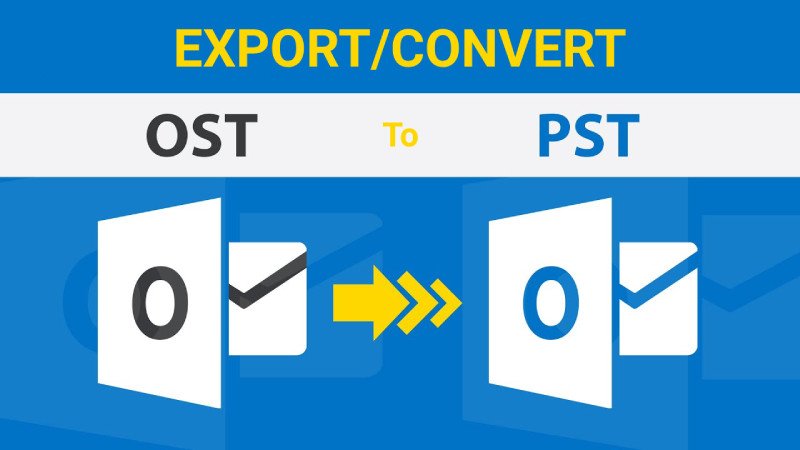In the current digital landscape, email continues to be a fundamental element of business communication. However, its extensive use also introduces considerable risks, as cybercriminals take advantage of weaknesses in email systems. Among the most severe threats facing organizations, regardless of their size, are Business Email Compromise (BEC) and email spoofing. These attacks can result in financial losses, damage to reputation, and breaches of sensitive data.
Thankfully, there are robust solutions available to combat these issues. One particularly effective and easily accessible option is the free DMARC lookup tool. In this article we will check how this tool can play a crucial role in enhancing any organization’s cybersecurity framework.
Understanding the Threat: Business Email Compromise and Spoofing
What Is Business Email Compromise?
Business Email Compromise (BEC) is an advanced fraud scheme aimed at businesses, where attackers pose as company leaders or reliable suppliers. They may either infiltrate genuine email accounts or set up convincing counterfeit domains to mislead employees. The primary objective is to coerce staff into sending money or disclosing confidential information.
These scams are frequently well-researched and customized for the specific target, making them particularly successful and hard to identify without adequate protective measures in place.
How Email Spoofing Plays a Role
Email spoofing is a method employed by cybercriminals to manipulate the sender’s address in an email header, creating the illusion that the message originates from a familiar or trusted source. These fraudulent emails can be challenging to identify at first glance and frequently evade standard spam detection systems. Spoofing serves as a fundamental strategy in various schemes, including phishing attacks, business email compromise (BEC), and the distribution of malware.
The Role of DMARC in Email Protection
What is DMARC?
DMARC, or Domain-based Message Authentication, Reporting, and Conformance, is a protocol designed for email authentication. It enables domain owners to designate the authentication methods used for their emails, specifically SPF (Sender Policy Framework) and DKIM (DomainKeys Identified Mail).
One of the fundamental aspects of DMARC is its capability to guide email receivers on the appropriate actions to take when messages do not pass authentication checks. It explicitly indicates whether such emails should be placed in quarantine or outright rejected. This mechanism is essential for blocking potentially harmful or fraudulent messages from arriving in recipients’ inboxes.
Why DMARC is Essential
DMARC offers robust safeguards against the illicit use of your domain, a practice often referred to as spoofing. Additionally, it produces insightful reports that identify those sending emails in your name. This transparency enables organizations to swiftly recognize any improper use or unauthorized actions.
Adopting DMARC enhances the credibility of your brand and minimizes the chances of phishing and business email compromise (BEC) incidents. It is an essential measure for ensuring secure and reliable email interactions.
How the Free DMARC Lookup Tool Works
A Quick Overview
A complimentary DMARC lookup utility enables individuals to check if a domain’s DMARC record is properly set up in the DNS. Users can quickly input a domain name and immediately view the specifics of the record. The tool assesses the level of protection the domain has against impersonation and phishing threats, as well as whether the setup adheres to contemporary security standards. This rapid evaluation assists users in enhancing their domain’s email security defenses.

What Information It Provides
The DMARC lookup utility usually reveals essential information, such as the policy status of the domain (whether it’s set to p=none, quarantine, or reject), rules for subdomains, alignment configurations, and reporting options. This tool is instrumental in pinpointing any mistakes or vulnerabilities in the setup that might jeopardize the domain’s security. Certain tools enhance their functionality by providing advice on how to strengthen the policy.
These suggestions can enhance email authentication and security measures. In summary, the tool plays a crucial role in ensuring that the domain’s protective measures adhere to robust security criteria.
Preventing Spoofing with a Free DMARC Lookup Tool
Strengthening Your Domain
A DMARC lookup tool is essential for ensuring that your domain has adequate email authentication. If your domain lacks a DMARC record or has a lenient policy such as p=none, it becomes vulnerable to spoofing attacks. This vulnerability can result in phishing, fraud, and harm to your brand without your awareness.
By utilizing this tool, you can identify these security gaps and encourage the implementation of more robust policies, such as quarantine or reject. Enhancing your DMARC configurations greatly boosts your email security defenses.
Monitoring Misuse of Your Domain
One of the main advantages of DMARC is its ability to generate reports, giving you valuable information about the treatment of emails originating from your domain. Numerous DMARC lookup tools can indicate if your domain is ready to receive this feedback. In cases where there are attempts to impersonate your domain, DMARC aggregate reports can reveal these unauthorized actions.
These tools confirm that your domain is correctly configured to gather and assess these reports. This level of insight enables you to identify and address misuse promptly, preventing it from worsening.
How the Tool Helps in BEC Defense
Visibility into Email Ecosystem
In Business Email Compromise (BEC) attacks, maintaining visibility is vital since attackers frequently take advantage of external services. Utilizing a complimentary DMARC lookup tool allows IT departments to see which entities are sending emails on behalf of their domain. If any unauthorized or dubious services are identified, they can be promptly marked for further scrutiny.
This proactive approach enables organizations to respond swiftly to potential threats, minimizing the risk of damage. By recognizing risks as they occur, companies can effectively outmaneuver cybercriminals.
Building Trust with Email Recipients
An effectively set up DMARC policy communicates to email providers and users that your domain follows rigorous security protocols. This fosters trust, resulting in better chances of landing in inboxes and a reduced likelihood of emails being classified as spam. Additionally, it protects against malicious actors who might exploit your domain for Business Email Compromise (BEC) schemes.
When recipients observe that an email meets DMARC criteria, they are more likely to consider it credible. Consequently, both the delivery rate and overall security improve.
Who Should Use a Free DMARC Lookup Tool?
Small Businesses and Startups
Small and medium-sized enterprises often become targets for cybercriminals who assume these businesses have weak security measures. By utilizing a free DMARC lookup tool, these organizations can inexpensively obtain crucial information regarding their email security. This tool helps identify weaknesses and protects against domain exploitation without the need for expensive software investments.
Consequently, it enables them to access robust security solutions typically reserved for larger corporations. As a result, they can enhance the protection of their brand image and maintain customer confidence.
Large Enterprises
Even sizable companies that have specialized security teams can benefit from frequently utilizing a DMARC lookup tool. This tool offers an extra level of validation to help ensure adherence to regulations and adjust to evolving email protocols. For businesses operating multiple domains or on a global scale, it simplifies the process of auditing those domains.
It guarantees that each domain is secure and correctly set up. Regular oversight through this tool enhances the overall email security for the entire organization.
MSPs and IT Consultants
Consultants and Managed Service Providers can utilize a DMARC lookup tool to efficiently assess client domains and identify security weaknesses. This tool helps them detect urgent problems that need to be addressed and sets the stage for comprehensive security assessments.
By demonstrating their knowledge early in the process, they establish credibility with clients. Providing straightforward, actionable recommendations fosters trust and serves as an effective foundation for implementing enduring cybersecurity strategies.
Key Advantages of Using a Free DMARC Lookup Tool
- Fast and Easy to Use: These tools are created with user convenience in mind. Users simply input a domain name and receive a comprehensive analysis of the DMARC record almost instantly. There’s no requirement to access DNS dashboards or interpret records by hand.
- Helps Detect Misconfigurations: A DMARC record may exist, but it can still be improperly set up. Using a lookup tool can reveal issues such as syntax mistakes, unsupported tags, or absent reporting directives. These errors in configuration frequently result in weak enforcement and unsuccessful authentication.
- Improves Email Deliverability: DMARC not only bolsters security but also boosts the chances of successful email delivery. Properly authenticated emails are less prone to being marked as spam. Utilizing a lookup tool can verify that your authentication configuration supports better placement in recipients’ inboxes.
- Supports Ongoing Security Audits: Utilizing free DMARC lookup tools is beneficial for continuous oversight and ensuring adherence to regulations. Frequent checks help maintain your domain’s alignment with the latest policies and authentication requirements, thereby minimizing potential security vulnerabilities over time.
- Ideal for All Skill Levels: Regardless of whether you are an experienced IT expert or a small business owner with minimal technical skills, these tools are user-friendly and available to everyone. Their straightforward nature serves as an effective initial measure for enhancing email security without requiring extensive knowledge of DNS.









